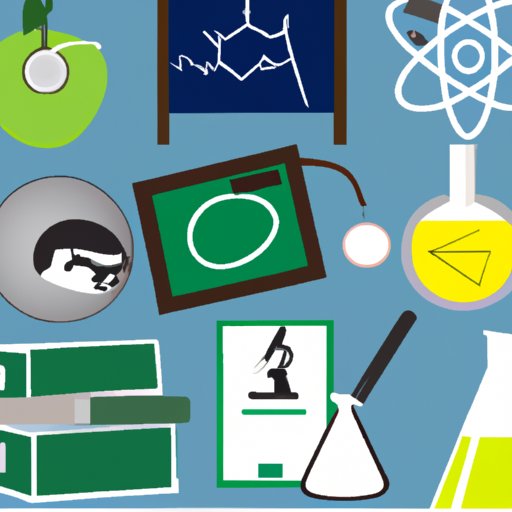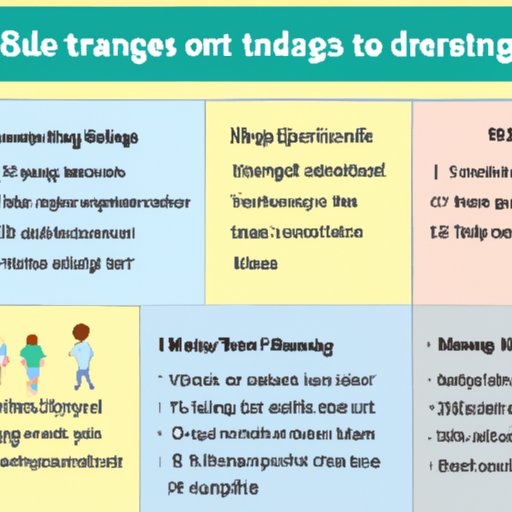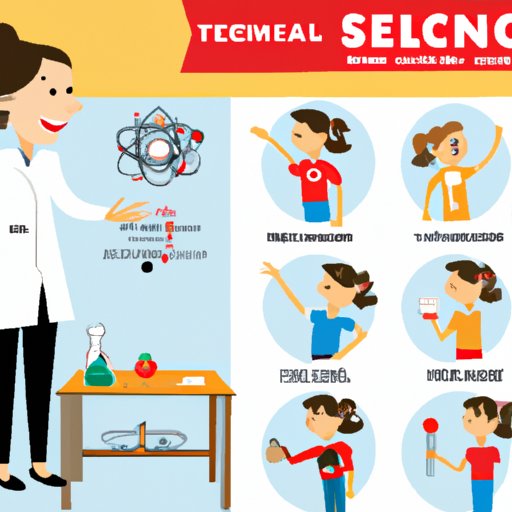Introduction
Elementary school teachers are responsible for introducing children to the wonders of the world around them. Science teachers in particular play a key role in inspiring students to explore their natural curiosity and develop a lifelong interest in STEM subjects. If you’re considering becoming an elementary science teacher, this article will discuss the education requirements and benefits of the position, as well as important skills needed to be successful and strategies for developing engaging lesson plans.

Education Requirements for Becoming an Elementary Science Teacher
If you’re interested in becoming an elementary science teacher, you’ll need to complete several steps before you can begin your career. First, during high school, it’s important to take courses that prepare you for college, such as math, science, and English. According to the National Center for Education Statistics, taking advanced science courses can help you gain a better understanding of scientific concepts and theories.
Once you graduate from high school, you’ll need to pursue a bachelor’s degree in education or a related field. Most states require teachers to have a minimum of a bachelor’s degree, although some may also require a master’s degree. Additionally, many states require elementary school teachers to major in a subject area, such as science, which can involve taking courses in biology, chemistry, physics, geology, and other sciences.
After completing a degree program, you’ll need to obtain a teaching license or certification. The requirements for obtaining a teaching license vary by state, but typically involve passing a professional licensing exam and completing an approved teacher preparation program. Once you have obtained your teaching license, you’ll be qualified to apply for elementary school teaching jobs.

Benefits of Being an Elementary Science Teacher
Being an elementary school teacher has many rewards. One benefit is making a difference in the lives of young students by helping them develop a love for learning. According to a study conducted by the University of Michigan, teachers often cite the personal satisfaction they get from seeing their students succeed as the most rewarding part of their job.
Additionally, there are many opportunities for career growth and advancement. With experience, you can move into higher-level positions such as department head or school principal. You may also be able to pursue specializations like teaching gifted students or working in a STEM laboratory. Finally, experienced teachers may have the opportunity to pursue additional education and training to become a master teacher or mentor to new teachers.
Important Skills Needed to be a Successful Elementary Science Teacher
In addition to completing the necessary education and certification requirements, it’s important to possess certain personal qualities and skills to be a successful elementary school science teacher. First, you should have a deep understanding of scientific concepts and theories. This will help you explain complex ideas to your students in an accessible way.
You should also be able to communicate effectively. Teaching requires being able to convey information clearly and accurately, and to give feedback in a constructive manner. Additionally, it’s important to have patience and creativity when dealing with students who may struggle to grasp difficult concepts. Finally, having strong organizational and time management skills is essential for planning lessons and managing the classroom environment.
Strategies for Developing Lesson Plans
When developing lesson plans, it’s important to research relevant topics and stay up-to-date on current events related to science. Utilizing different teaching methods such as lectures, group activities, and hands-on experiments can help engage students and encourage them to think critically. Additionally, incorporating technology and multimedia into lessons can help make learning more interactive and enjoyable.
It’s also important to create lesson plans that are age-appropriate. According to a report by the National Academy of Sciences, creating experiences that are both meaningful and developmentally appropriate is key to helping students understand scientific concepts.

Tips for Engaging Students in the Classroom
Engaging students in the classroom is essential for fostering a positive learning environment. One way to do this is by using active learning techniques, such as problem-solving activities and discussions, to get students involved in the material. Involving students in experiments can help them learn through hands-on experience and make learning more memorable.
Encouraging student-led discussions is another way to keep students engaged in the classroom. According to a study published in the Journal of Educational Psychology, allowing students to lead discussions can help them develop critical thinking skills and gain confidence in their abilities.
Resources for Further Professional Development
There are many resources available to help elementary school science teachers further their professional development. Joining a professional organization such as the National Science Teachers Association can provide access to networking opportunities, as well as workshops and conferences to help stay up-to-date on educational trends. Additionally, there are many online courses and continuing education programs available to help teachers stay current on best practices.
Conclusion
Becoming an elementary school science teacher can be a rewarding and fulfilling career. In order to become a successful teacher, it’s important to have a deep understanding of scientific concepts, the ability to communicate effectively, and the patience and creativity to engage students in the classroom. Additionally, researching relevant topics and utilizing different teaching methods can help you develop engaging lesson plans. By taking advantage of the many resources available, you can continue to grow professionally and inspire students to explore the world of science.
(Note: Is this article not meeting your expectations? Do you have knowledge or insights to share? Unlock new opportunities and expand your reach by joining our authors team. Click Registration to join us and share your expertise with our readers.)
